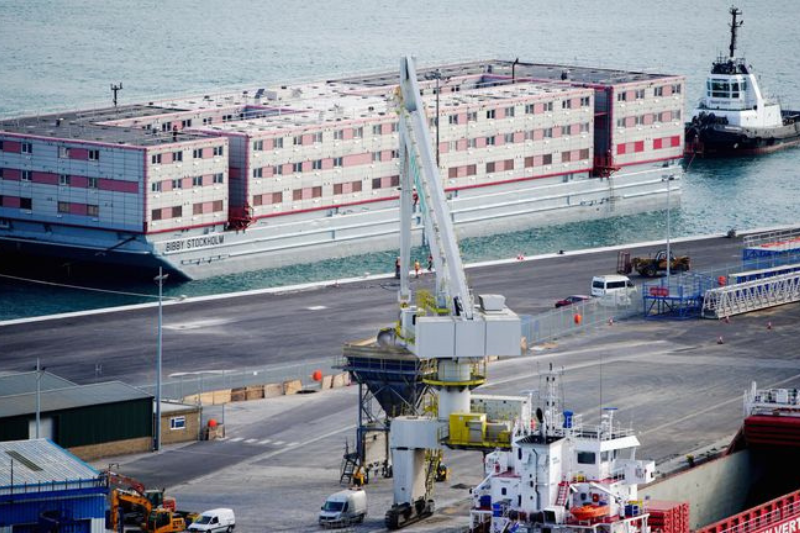
bibby stockholm engineless barge set to house asylum seekers arrives in dorset
The Bibby Stockholm “floating accommodation vessel” has arrived at the Isle of Portland. Its port, on Dorset’s Jurassic Coast, will be home to the controversial engineless barge set to house migrants entering the UK through illegal routes.
The vessel has become the new epicentre of the heated migrant debate, amid the British government’s controversial Illegal Migration Bill, failed Rwanda scheme and Prime Minister Rishi Sunak’s promise to “stop the boats”.
While Bibby Stockholm is touted to save the government millions of pounds on hotel rooms, a number of politicians and local residents are visibly worried about division, safety and local services. Here, Workers Rights looks at what conditions will be like on board.
Why A Floating Vessel Over Other Options
The backlog of UK asylum seeker cases has reached an all-time high. Over 166,000 people were still waiting for a decision at the end of 2022, the latest Home Office figures showed. In addition to the worrying existing numbers, hundreds of migrants continue to cross the Channel each day.
Currently, the government is spending a whopping $7.8 million a day to house 51,000 asylum seekers in hotels. But protests and pressure on local services has compelled ministers to consider other options, such as empty holiday parks, military sites and university halls.
Keep Reading
The “floating accommodation” – already in use in the Netherlands – is also cited by the ministers as an option. The government claims Bibby Stockholm is much cheaper than hotels – with food, security and healthcare expenses reported to be around $25,800 a day.
Who Will Be Living On The Vessel?
The engineless barge has a capacity of 506 people. Only single adult men aged between 18 and 65 will be sent there after entering the country illegally. This will prevent the need for infrastructure like schools, maternity and childcare services.
While the asylum seekers are expected to be kept there between three and six months, the duration could be extended to nine. There is no curfew – residents are free to come and go anytime they want. But they will need to sign a register and pass through port security.
What The Conditions Will Be Like?
Facilities on the Bibby Stockholm are designed to “minimise the need to leave,” according to the government. The vessel has 222 en suite bedrooms, with each having two single beds, a shower, TV, window, desk, wardrobe and additional storage.
In addition to a reception desk and Wi-Fi throughout, the barge has a gym, canteen, multi-faith room, laundry facility, TV and games. The bar has been removed. The local NHS has been paid to provide on-site medical facilities, in order to avoid extra pressure on local services.
Conservative MP Chris Loder, however, has stressed each room on the Bibby Stockholm was only designed for a single person. He has demanded to see a safety report, claiming the number of migrants set to live on the vessel is double the capacity it had been designed to hold.








